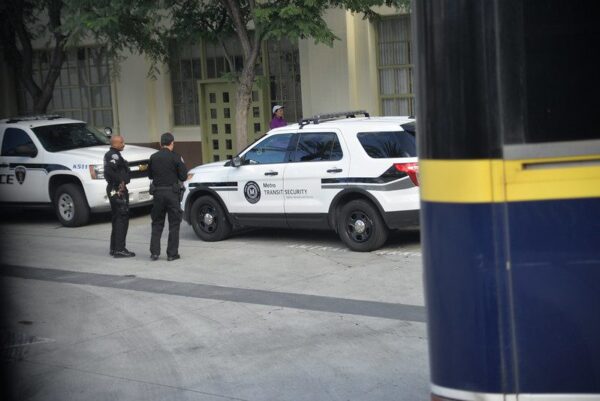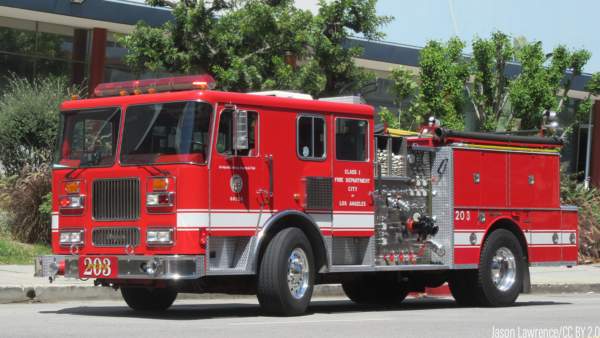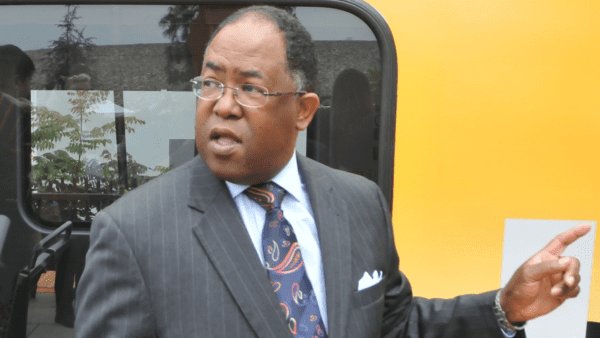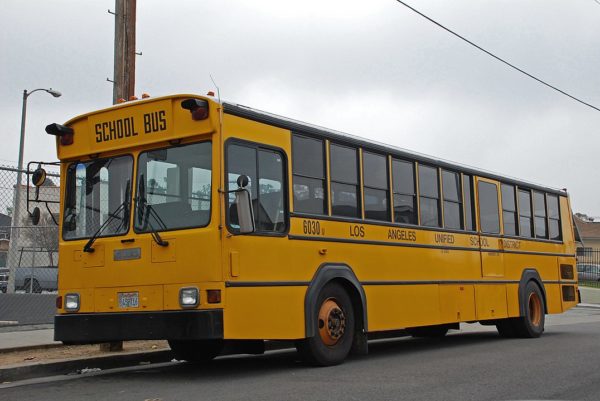The LA Metro Board of Directors voted Thursday to negotiate and extend its current multi-agency transit law enforcement contracts with modifications for up to three additional years, through June 2026.
This purpose is to explore alternative ways to ensure public safety such as forming an in-house police department, according to Metro.
“Accountability and culture are paramount,” said James Butts, Mayor of Inglewood and a member of the Board of Directors. “We have to go on to extend into the future. We don’t have any choice.”
At the board’s February 2017 meeting, Metro approved the awarding of three individual five-year, firm-fixed unit rate contracts with the Los Angeles Police Department, Long Beach Police Department and Los Angeles County Sheriff’s Department to support its day-to-day bus and rail operations across Metro’s entire service area. Those contracts are set to expire on June 30.
According to a staff report, the 2017 contracts are valued approximately $645.7 million but were amended seven times for a total contract value over the six-year period of approximately $911.9 million.
As part of Metro’s efforts to consider alternative methods for public safety, in April 2022, the agency issued a request for proposals for transit law enforcement services and a total of five proposals were received in October 2022.
Four of those proposals were multi-agency and the other was a single, system-wide proposal, according to Metro staff. However, the single system-wide proposal was withdrawn, and the other four failed to meet the overall needs as required in the RFP.
Metro staff recommended its board to extend the contracts for up to three years and initiate negotiations for rates and deployment plans with LAPD, LASD and LBPD. Staff also noted that Metro will make revisions to statements of work, including compliance with the principles of Metro’s bias-free policing policy and the public safety analytics policy.
The item to move forward with current multi-agency transit law enforcement contracts resulted in a lengthy discussion Thursday with county Supervisors Holly Mitchell, who abstained, and Lindsey Horvath, who voted no, voicing their concerns.
Mitchell brought up various points including questions about how Metro will manage costs that account for inflation and what funding resources will help pay for any additional costs. She also referenced the 2022 audit report from the Office of the Inspector General, which reflected challenges Metro faced in the deployment of contracted law enforcement services.
“Concerns that have been identified include poor police visibility on buses, trains and at stations, inconsistent staffing at key critical infrastructure locations and ineffective monitoring and oversight of contracted law enforcement personnel to ensure they are patrolling on the Metro system,” according to the report findings.
The report also found that 54% of the LAPD calls for service involving Metro were answered by neighborhood patrol units, not the LAPD officers assigned to Metro at the time of the call.
In response, the LASD sent an email to the board of directors refuting several claims in the report along with operational data, according to Horvath. The LAPD and LBPD have not given much response to these issues, Mitchell said.
“At the executive management committee, last week particularly, some of the issues raised by Director Butts suggested that our law enforcement partners have resisted taking deployment instruction from LA Metro,” Mitchell said. “As if to suggest that as their client that we don’t have the right to dictate the type of deployment we would want on our own system.”
Staff reassured Mitchell that as part of future negotiations, staff will ensure that the deployment strategies are a collaboration and mutually agreed upon between the agencies and Metro.
“I’m willing to give the CEO authority to continue down the road of keeping the contracts in place with the provision that we really sit down with them and their leadership and have that discussion that I don’t know if we often do,” said Hilda Solis, 1st District supervisor and Metro board member. “Sometimes there’s a reason why, but I think special circumstances require special actions.”
Under this motion, the Board of Directors will receive a report back in May regarding the feasibility of creating an in-house Metro law enforcement agency. During the discussion, the directors all agreed this would be something worth pursuing.
Mitchell expressed to staff that she would like for the report to include details on a cost-savings approach to creating a public safety agency, what training would look like, what percentage of those officials would be unarmed versus armed and ways for that agency to be held accountable and remain transparent.
Staff included in their report that 10 public entities maintain a transit safety agency such as New York City, Chicago, New Jersey and Atlanta.
“I’m very excited at the notion of creating an in-house agency that could be a real opportunity to re-envision public safety, especially public safety connected to transportation,” said Los Angeles Mayor Karen Bass, a member of the board.
“What we have traditionally done is looked at trying to change the culture of an existing institution, which is a lot more difficult in creating a new institution with a new culture,” she added. “I’m going to vote to continue to extend the contracts because I know that this is going to take quite a while for us to get to.”
The Board of Directors voted to negotiate and extend the contracts with LAPD, LASD and LBPD for three years, and will receive a follow-up report in May related to establishing a Metro public safety agency.
“This is an ongoing process,” said Ara Najarian, chair of the Board of Directors. “No matter how we end up voting on this particular issue, the board is resolved to address the issues of public safety, issues of fear and the issues of perception of crime in our system.”







